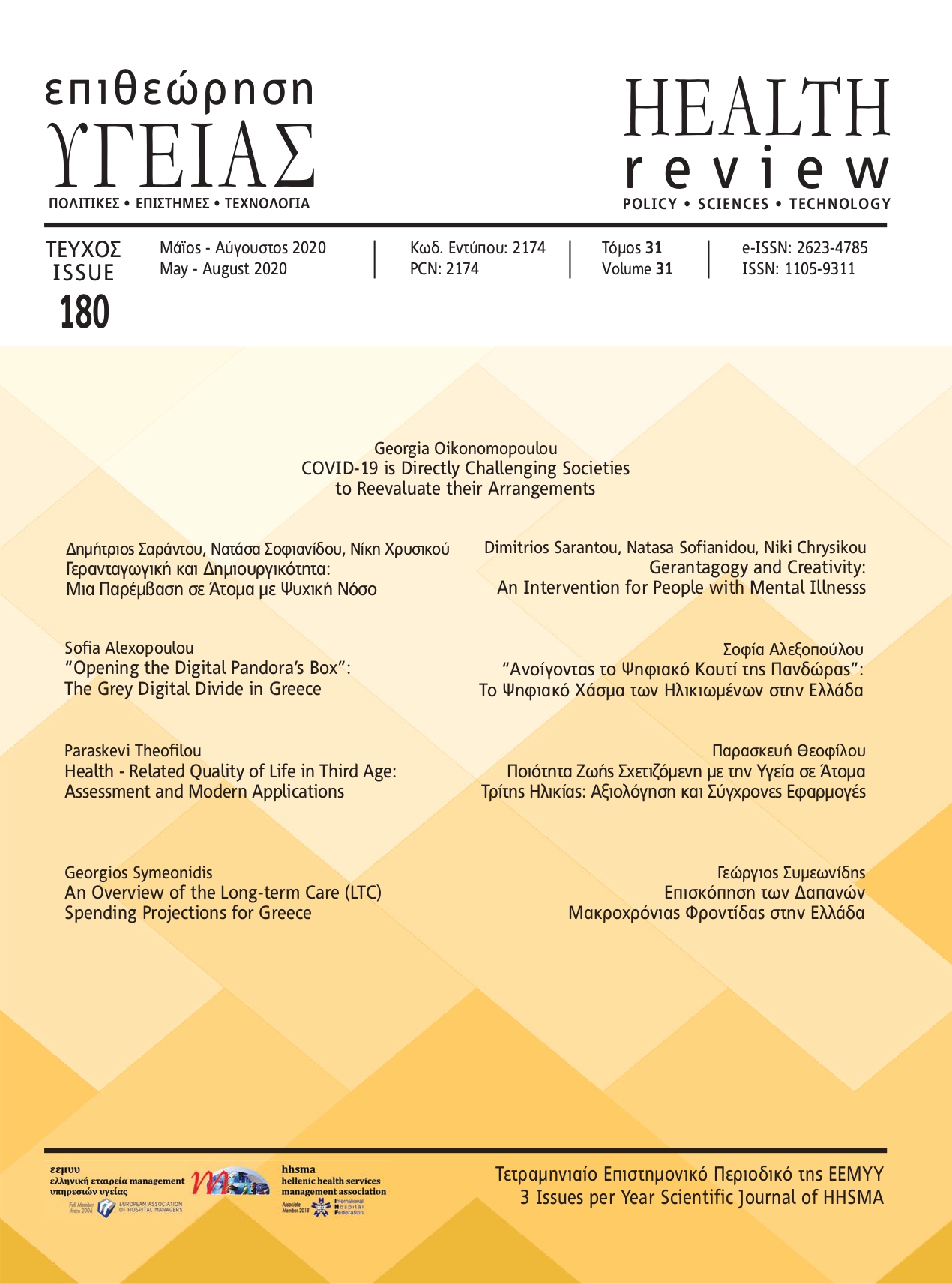Abstract
Introduction: In recent years there has been a growing interest in the investigation of the quality of life (QOL) in elderly patients.
Purpose: The examination of the psychometric properties of the Greek version of the Missoula-Vitas Quality of Life Index-15 (MVQOLI) questionnaire, the shortest form of the MVQOLI-25, as well as the Illness Effects Questionnaire (IEQ) in a sample of elderly patients.
Material and method: The Greek version includes the 15 questions of the English prototype, while the study of the questionnaire was based on a sample of 79 elderly subjects consisting of patients with chronic renal failure of end stage who were attending a dialysis program (HD). The questionnaire consists of five dimensions (symptoms, functionality, interpersonal relationships, wellbeing, spirituality) and the overall score. The statistical analyses carried out relate to the measurement of internal validity, repeatability, the agreement of the replies (test, re-test reliability), as well as the convergent validity with the statistical programme Statistical Package for Social Sciences (SPSS), version 23.0. The IEQ questionnaire also examined the reliability and validity of different groups of elderly chronic patients.
Results: The internal validity of the MVQOLI-15 was satisfactory, with the total score of Cronbach’s alpha being 0.74. Regarding the convergent validity, significant correlations were identified between the overall score and the five dimensions. The test, re-test reliability (Pearson’s r και ICC values) was excellent, with values ranging from 0,91 to 0,98. In a general population of elderly patients, IEQ had excellent short-term R = 0.99 measurements while in a population of elderly people with spinal injuries, the two-day reliability coefficient was R = 0.95. IEQ developed relatively strong relationships with Illness Behavior Questionnaire in a population of 121 elderly patients with chronic pain and arthritis.
Conclusions: The above questionnaires are reliable and valid tools to assess the QOL.
